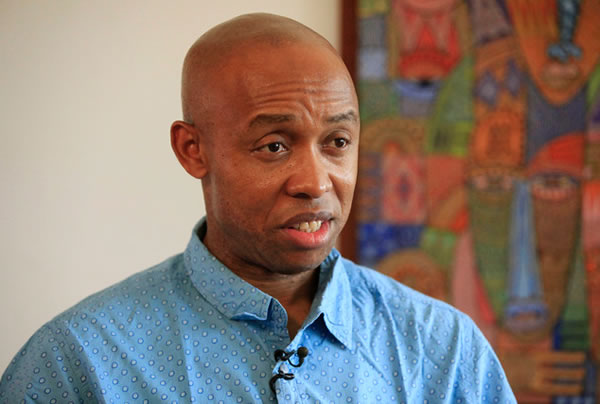
Odinkalu also stated that the commission received 36 memoranda, 28 submissions from traditional rulers, and 18 verbal submissions from witnesses, among others.
He stated this during an interview with journalists after the submission of the report of the commission to the Anambra State governor, Prof. Chukwuma Soludo, on Wednesday.
Odinkalu, a former Executive Secretary of the National Human Rights Commission, thanked the governor for entrusting them with the task, noting that the biggest structural factor in the violence is the political economy of land and not IPOB/ESN.
Soludo, in June 2022, set up the commission and saddled it with the task of unraveling the circumstances behind insecurity which was at its peak in the South-East as of then, to begin the genuine quest for peace and reconciliation, among others.
The commission, which also has Ambassador Bianca Ojukwu as its Secretary, began work by conducting town hall meetings and engagements with various stakeholders, communities, traditional rulers, security agencies, and individuals who were in one way or the other affected by the insecurity.
Speaking further, Odinkalu said, “The commission surveyed 66 communities in the state, documenting cases of traditional rulers, security agents, presidents-general and community members who have disappeared and remain missing.
“The commission gathered 422 evidence, interviewed 187 persons, 36 memoranda, had 28 submissions from Traditional rulers, 18 verbal submissions, among others. The Commission discovered that land is central to understanding the crisis in Anambra State.”
He further argued that while Lagos is gaining land, Anambra is losing land due to ecological pressure, crises in leadership, and impunity.
He, however, stressed the need to end the use of the term “unknown gunmen,” especially by the media, develop a 25-year security strategy to reform community governance, and establish an agency for the protection of victims and accountability for violence.
According to him, the commission, among other recommendations, recommended that closure be given to the late lawyer, Mr Barnabas Igwe, and his wife, who were killed.
He added that the report, “sitting on the shelves” be acted upon, stressing that the way out is to deliberate out of the crisis which is unfortunately an existential issue.
“Specifically, the terms of reference of the committee were to identify the remote and immediate causes of the agitations, restiveness, violence and armed struggle in the South-East since 1999, to document victims and circumstances of death, brutality and incarceration, identification of stakeholders and groups who have played critical roles in the agitations and conflicts, their roles, capabilities and demands.
“Other terms of reference include addressing any other issues that may be germane to unravelling the extent of the crisis and charting the roadmap for the future and making recommendations for sustainable peace and security in Anambra State and South East.”
Recall that among those who testified before the commission was Obum Akunyili, one of the children of the late Prof. Dora Akunyili, who revealed the heart-wrenching details of his father’s tragic demise.
He also shared the account of how onlookers, instead of rushing his father, the driver, and the security personnel to the hospital for urgent medical care after unidentified assailants shot them, were preoccupied with recording videos of the incident.
Obum’s testimony underscored the unfortunate reality that his father and the driver bled to death due to the lack of immediate assistance, leaving them with no chance of possible survival.
He also told the commission that his late father had about a 10 per cent chance of surviving the gunshot wound on his head if there was timely medical intervention.
Others who testified gave accounts of several incidents that bordered on insecurity in the period under review.





